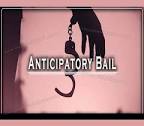The Bombay High Court denied anticipatory bail to a school’s chairman and disciplinary authority in a case of aiding a student’s suicide because he “shattered the tender mind” and “put him in deep frustration.”
In the case of Ganpathrao Janardhan Patil vs. State of Maharashtra (Anticipatory Bail Application No. 1057 of 2022), a single-judge bench led by Honourable Justice Vinay Joshi found that a young student had died as a result of the applicant’s actions, and that custodial interrogation was required for the case where the investigation was ongoing.
“According to witness statements, the applicant scolded the deceased minor boy in an unruly manner. He had also summoned his parents to school. In the presence of the teacher and the Informant (grandfather), scolded in an unparliamentary manner once more (quoted above). The applicant appears to have created an impression in the student’s mind that has caused him great frustration. It should be noted that there is a direct link between the applicant’s act and the child’s suicide within a few hours of the episode “The court took notice.
The “unparliamentary words” mentioned were Patil’s remarks about the deceased being “nalayak” (worthless), jhopadpatti-chhap (like a slum-dweller), having no right to live, and being a burden on the world. All of these words were allegedly spoken by the applicant in Marathi.
The court was hearing an anticipatory bail application filed by Ganpatrao Patil, the Chairman and disciplinary authority of Symbolic International School in Maharashtra’s Kolhapur district. Patil’s wife is the school’s principal.
On April 2, 2022, a case was registered against him at Shiroli MIDC Police Station under sections 305 (abetting suicide), 504 (intentional insult), 506 (criminal intimidation), and 34 (common intention) of the Indian Penal Code, as well as sections 75 and 87 of the Juvenile Justice (Care and Protection of Children) Act, 2015.
Facts of the case:
According to the grandfather’s complaint, the deceased was a standard 10 student at the school. According to the complaint, he received a phone call from the school on April 1, 2022, asking him to come to the school. When he arrived at school, he was asked to return his grandson (deceased) to the house.
When questioned, the grandson stated that he accidentally hit a girl while playing football, after which Patil scolded and abused him in foul language. When the grandfather met Patil to inquire further, Patil informed him that the grandson had injured a girl, was ill-cultured, had no chance of reformation, and was a slum boy.
Patil allegedly also informed the complainant that the school Principal had informed him that the grandson had previously behaved in an unruly manner and that the boy should be rusticated from the school. Patil then allegedly said all of the words that the court deemed unparliamentary in the presence of a teacher. The boy was taken home by his grandfather, where he died by suicide by hanging himself within a few hours.
Patil’s counsel argued in court that the allegations, even taken at face value, did not reveal adequate mensrea and that, as Chairman and disciplinary authority, Patil’s act of reprimanding a student could not be construed as sufficient instigation to commit suicide.
It was argued that Patil’s disciplinary action did not imply that he intended to incite the deceased to commit suicide, and that without adequate mens rea, the act of abusing the student cannot be considered sufficient “abetment” under section 107 of the Indian Penal Code. Several decisions were cited to support the arguments.
The Prosecutor, for his part, opposed the plea, claiming that the student had committed suicide within hours of the incident and that Patil had created circumstances that led to the boy’s suicide, and that an investigation was underway.
Court’s Findings:
The court, citing a case cited by the Prosecutor, stated that it was well established that each case is determined by the facts and circumstances of the case. “Only the facts of a specific case can reveal whether a person aided in the commission of suicide. There may be an indirect act of incitement to commit suicide “The court took notice.
“On examining the entire investigation paper, it reveals that there are several complaints of the parents against the applicant about misbehavior with students,” the court added. In the case at hand, the applicant’s statements are objectionable. He can, without a doubt, reprimand students, but not in a way that would “shatter the tender mind” and “put him in deep frustration,” according to the High Court.
Judgement Reviewed By Manju Molakalapalli


